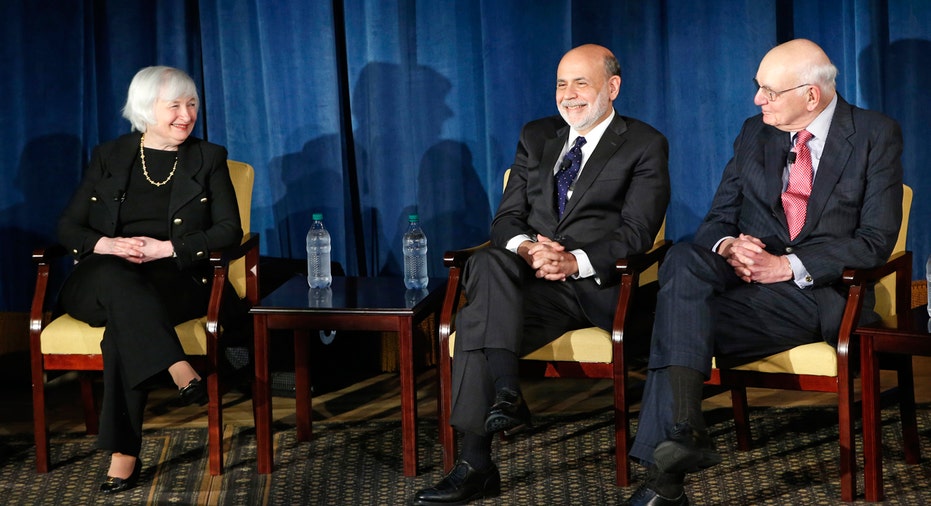Yellen: U.S. on Track for More Hikes

The U.S. economy is on a solid course with some hints of inflation so the Federal Reserve is on track for further interest rate hikes, Federal Reserve Chair Janet Yellen said on Thursday in a defense of her decision to tighten policy late last year.
In a rare spectacle, Yellen spoke on a New York panel alongside her three predecessors who ran the world's most powerful central bank. She said that, seven years after the brutal financial crisis, the U.S. labor market was now "close" to full strength, again arguing that inflation would not be held down much longer by the strong dollar and low oil prices.
"The U.S. economy has continued to progress in a satisfactory way. We continue to see good job performance, some evidence of inflation moving up, so that was our expectation when we raised rates in December," she said at the International House, a New York non-profit residence for students.
"So yes, there is accommodation in the monetary policy that we have. But we think the gradual path of rate increases will be appropriate," Yellen added. "We remain on a reasonable path and I don't think December was a mistake."
The Fed raised its benchmark policy rate in December, the first increase in nearly a decade, to between 0.25 percent to 0.5 percent.
Ben Bernanke and Paul Volcker joined the current Fed chair at the conference, and Alan Greenspan appeared via teleconference screens next to the stage. Between the four of them, they ran the Fed for a third of its 102-year history. This included Volcker's taming of the 1970s runaway inflation, and Greenspan's 18-year run of relative economic stability and financial deregulation that ultimately led to the 2007-2009 Great Recession.
In a casual moderated discussion, they expressed a remarkable amount of agreement over each other's varied handling of the economy. They also agreed that China's growing prominence posed more opportunity than threat, and that fiscal policymakers should step up more to support the Fed's economic stimulus.
A hot topic for the panelists was the U.S. election campaign, in which Republican presidential front-runner Donald Trump has lambasted the central bank for helping to stoke asset bubbles.
"I certainly wouldn't describe this as a bubble economy," Yellen said, noting a "healing" labor market in which unemployment is 5 percent, or about where the Fed wants it.
While Volcker admitted he saw some "overextended" parts of the financial system, he agreed with Yellen, saying he does not believe the United States is in an economic bubble.
Asked about the monetary policy adage in which the Fed takes away the punch bowl just as the party gets going - and whether any of his successors added too much vodka - Volcker, who ran the Fed from 1979 to 1987, said: "My successors were great, all."
(Reporting by Jonathan Spicer in New York; Additional reporting by Jason Lange in Washington; Editing by Diane Craft)



















